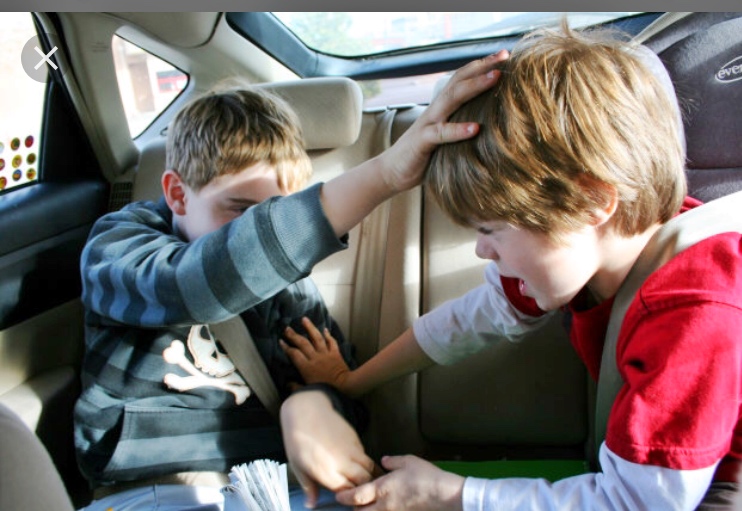Most motorists are aware of what not to do and what to do while driving like don’t drink and drive or don’t use your cell phone while driving. Sadly, this doesn’t mean that everyone adheres to these laws, but it is pretty clear not to do these things while driving.
There is another kind of distraction we sometimes forget about and that is what to do with boisterous children while you drive. You can’t just put them in your car boot like you would your cell phone!
There is no cut and paste solution, but there is a method that clinical psychologist, Melissa Buchholz, uses on her children and shares this information with other parents. She boils it down to good parenting, by prevention and positive reinforcement.
Here are some tips that she provides to help manage misbehaving children while driving.
- Talk to your children1
- This is only applicable if your children are old enough to understand. You are then able to talk to them about the car ride and what you expect of them while driving. You can set rules and draw up certain boundaries when you are driving, like no yelling or no throwing things around. You can also enforce this by taking privileges away from them.
- Keeping them occupied1
- Keep your kids occupied while driving. Short distances will only need small activities like I-spy or sing-along songs. If you are going on a long trip, give your child audiobooks to listen to in the car. It has been proven that kids who are properly restrained in the vehicle behave better.
- Natural consequences1
- Small children will often drop something in the car while you are driving and will ask you to pick it up for them. In doing this, you might as well be sending a text message. Instead tell your kids that if they drop their toy while you are driving, they will only get it when the car stops again.
- Predicting your children’s misbehaviour1
- If your child is most likely to misbehave due to be hungry or stressed, try and plan for this. Keep snacks in the car to give to your child to keep them happy and play soothing music to relax their mood.
- Don’t pay attention1
- If your child is not in distress and is safe, it is okay to ignore them. This helps parents to try and calm themselves down.
- Pull over1
- When it is safe to do so, rather pull over to calm the situation with your children than trying to do so while driving. This is a lot less dangerous. Make your kids understand that if they don’t stop misbehaving you will not drive until they behave.
- Reward them1
- For children who struggle to behave, it would be okay to reward them for good behaviour by incentivising them. This should not be practised all the time, but up until a time they understand better.
- Speak calmly to your children1
- When kids are misbehaving, it would be better to deal with them calmly. Speak to them calmly and be assertive. If you were to meet them with the same kind of aggression and yelling, it would just escalate their bad behaviour.
- Find ways to cope1
- Parents are often left to feel angry and frustrated when their kids behave this way which may cause them to yell at their children. Instead of doing that rather count to ten or take a deep breath or listen to calm music. If you feel that this is not helping, rather pull over and phone a friend or family member to help calm you down.
Please stay safe on our roads and remember to take all of the needed safety precautions when driving your children.
Another way to reduce your stress could be to save money on your car insurance. Are you interested in getting a quote for affordable car insurance? Affordable car insurance is available that comes with unique benefits like premiums that don’t increase* and a reduce to zero excess* with PMD. T’s and C’s apply.
Also view:
Avoiding Distractions while Driving

This article was prepared by Eric Sandmann in his personal capacity. The views and opinions expressed in this article are the author’s own. The views and opinions in the article should not be attributed to anyone but the author unless expressly stated. Nothing in this article should be relied upon as advice, this publication is presented for informational purposes only. No person should act or refrain from acting in reliance on any information found in this article, without first obtaining proper financial advice from the appropriate professional. The author makes no claims, promises or guarantees about the accuracy, or completeness, of any information linked from, referred to, or contained in this article. The author reserves the right, to edit and change the content of this article.
Source:


























